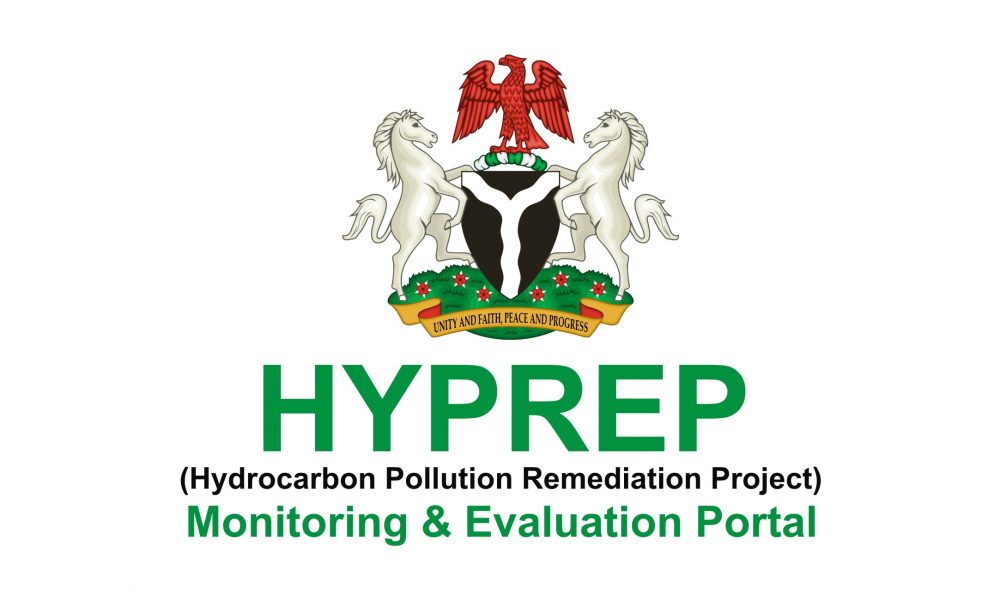The Hydrocarbon Pollution Remediation Project (HYPREP) has achieved significant milestones in its ongoing efforts to clean up oil pollution and restore the environment in the Ogoni region of Rivers State, Nigeria. HYPREP Project Coordinator, Professor Nenibarini Zabbey, announced that the project has successfully removed over 1.7 million kilograms of solid waste from the Ogoni creeks, a substantial step towards restoring the health of the vital waterways. Zabbey provided these updates during the project’s first quarterly youth interactive meeting held in Port Harcourt, emphasizing HYPREP’s commitment to community engagement and transparency. The meeting served as a platform to share progress updates, address community concerns, and foster collaboration between HYPREP and the youth of Ogoni.
The shoreline remediation project, a critical component of the overall cleanup effort, has reached 39.4% completion. This involves the delicate and complex process of removing oil-contaminated sediment from the sensitive mangrove ecosystem. HYPREP has recovered, evacuated, and treated over 937,000 liters of oily sludge from the mangrove sediment. The removal of this substantial quantity of contaminated material is a crucial step towards restoring the ecological integrity of the mangroves, which play a vital role in protecting coastlines, supporting biodiversity, and providing livelihoods for local communities. The project’s focus on shoreline remediation highlights the importance of addressing the long-term impacts of oil pollution and restoring the ecological balance of the affected areas.
Beyond shoreline remediation, HYPREP has made considerable progress in restoring the mangrove forests themselves. The mangrove restoration project has reached an impressive 86% completion rate, signaling a significant stride towards revitalizing these crucial ecosystems. Mangroves provide essential habitat for numerous species, act as natural barriers against coastal erosion, and contribute to carbon sequestration. Their restoration is essential for the long-term health of the Ogoni environment and the well-being of the communities that depend on them. HYPREP’s commitment to mangrove restoration demonstrates a comprehensive approach to environmental remediation, addressing both the immediate removal of pollutants and the long-term revitalization of the affected ecosystems.
Addressing the urgent need for clean water in the region, HYPREP is also engaged in the construction of water facilities across various Ogoni communities. Communities such as Bodo, Uegwere-Boue, Gwara, Taabaa, Okwale, Aleto, Kaani, Deken, K-Dere, and Borobara are among those slated to benefit from these new water projects. Access to clean and safe water is a fundamental human right, and these projects will significantly improve the quality of life for residents of these communities. HYPREP aims to commission these vital water projects in the third quarter of 2025, bringing much-needed relief to communities that have long suffered from the lack of reliable access to safe drinking water. This initiative underscores HYPREP’s commitment to addressing the broader socio-economic needs of the Ogoni people alongside environmental remediation.
Recognizing the vital role of community engagement, Professor Zabbey emphasized the importance of youth participation in the ongoing cleanup efforts. He praised the youth for their enthusiasm and concern for the success of the project, urging them to channel their energy towards constructive engagement and dialogue. Zabbey also cautioned against the spread of misinformation, which can undermine the project’s progress and create unnecessary obstacles. He emphasized the importance of relying on verified information and engaging in constructive dialogue to address concerns and contribute to the successful implementation of the cleanup.
Zabbey called upon the youth to embrace dialogue and negotiation as effective tools for resolving conflicts and driving positive change. He reiterated HYPREP’s commitment to working closely with the Ogoni communities and emphasized the importance of collaboration and transparency in achieving the project’s goals. The emphasis on youth engagement reflects HYPREP’s recognition of the importance of involving future generations in the long-term sustainability of the cleanup and restoration efforts. By fostering open communication and collaboration, HYPREP aims to build trust and ensure that the Ogoni cleanup is a truly community-driven process. The project’s success hinges on the active participation of all stakeholders, and the youth play a crucial role in ensuring the long-term health and well-being of the Ogoni environment and its people.














